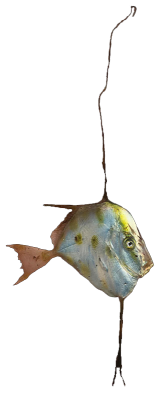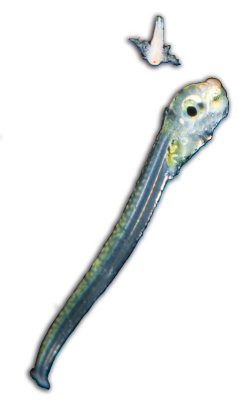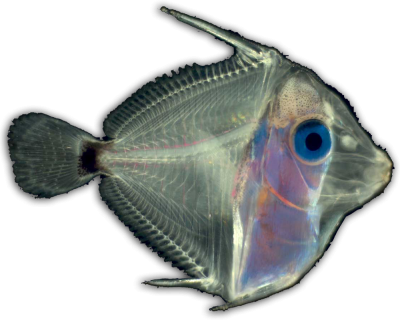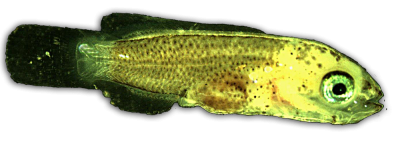Theme session 1
“Long-term ichthyoplankton data: insights and challenges”

A number of long-term ichthyoplankton programs have routinely sampled over broad timespans, in some cases extending over multiple decades. In total, these programs have sampled a diversity of habitats including freshwater, estuarine and marine ecosystems, and they vary in their purpose and design. The data and sample archives that these programs generate can be used in fresh directions of inquiry, such as elucidating the effects of changing climate on freshwater, estuarine, and marine ecosystems. What have we learned about temporal change in physical forcing, fish populations, assemblages and ecosystems from long-term ichthyoplankton sampling? What challenges arise in analysis and interpretation when the sampling was designed for a specific purpose, or for no particular purpose, or analyzed using a new approach or technique? What are best practices in sample preservation and data archiving, and how widespread are they? This theme session is envisioned to inspire future uses of existing sampling programs and to direct attention to design of long-term programs so that their potential for applicability and discovery is maximized.
Session chairs:


Keynote speaker:

Su studies physical-biological processes replenishing nearshore fish populations.
Learn more
Theme session 2
“Sensitivity of fish early life stages to combined climate change stressors”

Anthropogenic climate change increasingly perturbs both freshwater and marine environments, but how exactly predicted changes in temperature, acidity, oxygen content and other conditions will affect the fitness of fish early life stages remains an active, vibrant field of investigation. This session invites a broad range of contributions that use experimental, field and modeling approaches to elucidate the potential effects of climate change on fish early life stages. We welcome mechanistic studies on the organismal, molecular or population levels and encourage contributions from both marine and freshwater habitats. Field studies, concept and synthesis approaches are particularly welcome, as are studies that try to shed light on the potential for acclimation and adaptation of fish early life stages to their changing environments. While no single experiment or study allows predicting the fate of future populations, sustaining the accumulation and interpretation of empirical evidence is of utmost importance to improving predictions of future changes in species productivity and ecosystems.
Session chairs:


Keynote speaker:

Theme session 3
“Marine ornamental aquaculture enables discovery in larval fish biology”

Scientists conducting laboratory studies of live larval fishes may be stymied by the technical challenges involved in their aquaculture. The successful aquaculture operation usually requires successful long-term operations in not only larval fish aquaculture, but also in broodstock conditioning, and phyto- and zoo-plankton aquaculture. The field of marine ornamental aquaculture, aiming to provide a sustainable alternative source for some of the ~2,000 species of marine fish traded in the U.S. marine aquarium trade, is still in its infancy but has recently made significant technical advancements that has fueled a fledgling industry in commercial marine ornamental aquaculture as a celebrated facet of the trade. Larval fish biologists can gain from the insights learned in this field to foster a successful laboratory research program studying live larval fishes. Conversely, the field (and industry!) of marine ornamental aquaculture is poised to grow and diversify from the contributions that larval fish biologists can contribute on topics of larval fish biology (e.g., feeding behavior; development of digestive, immune, and sensory systems; nutrition).
Session chairs:


Keynote speaker:

Andrew has invested his career in understanding marine ornamental aquaria.
Learn more
Theme session 4
“Sensory biology and behavior of fish larvae”

The survival of fish larvae is dependent up on their ability to detect prey, avoid predators, navigate the open ocean and find settlement sites. Papers in this session will discuss larval fish behaviors, the sensory basis for such behaviors (e.g., vision, smell, taste, hearing, flow sensing), and their ecological consequences for fish populations and fish communities.

Session chairs:


Keynote speaker:

Peter's expertise is in behavioral ecology and population connectivity
Learn more
Theme session 5
“Form, function, and ecology of fish larvae”

This theme session invites novel contributions to our basic understanding of larval fish morphology, feeding, metabolism, growth, and predator-prey interactions. It also welcomes studies addressing the connectivity of fish populations via larval dispersal, drift, and settlement mechanisms.

Session chairs:


Theme session 6
“Fish early life growth, mortality and characteristics of survivors: do they tell us why fish populations vary?”

Since Johann Hjort hypothesized more than a century ago that fish early life stages hold the key to understanding the fluctuations of fish populations, the quest to find environmental predictors to larval fish survival and subsequent recruitment has continued unabated. This theme session invites novel contributions to the link between growth and mortality in larval fish, environmental predictors of recruitment success in commercial and model fish populations, and improved understanding of predation dynamics controlling larval fish populations. Experimental, field, and modeling approaches are welcome, because progress will likely come from integrating all these investigative angles.
Session chairs:

